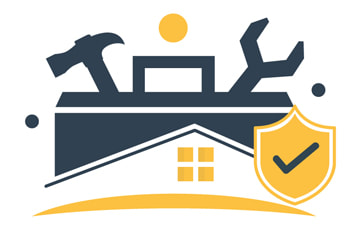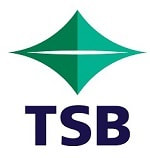Construction Loans - The Definitive New Zealand Guide
Building a home isn't easy - our guide outlines what you need to know about financing it. We compare ANZ, ASB, BNZ, TSB, and Westpac loan options.
Updated 12 July 2024
Construction and Home Build Mortgage Summary:
Our guide covers:
- Borrowing limits and deposits: Most banks will lend up to 90% of the total construction price. This means you'll need at least a 10% deposit, as well as a contingency fund (given the increasing cost of materials etc.)
- Payments: The process isn't complicated - once the bank approves, your loan is progressively drawn down in stages as the builder invoices you. The bank is most likely to pay the builder or supplier directly.
- Interest rates: Until the house is built, you'll pay a floating interest rate. You'll only pay interest on the amount you’ve drawn. Once you have the keys, the interest rate will shift to a fixed-rate which reduces interest costs.
- Applicable construction contract types: Turn key, build-only, partial contract and prefab/transportable. If you need to understand these different terms, this guide from mortgages.co.nz makes everything clear.
- Mortgage Cashback offers: May apply but usually only when the build is completed and the balance reverts to a fixed-term. We suggest talking to your broker or bank upfront about cashback - our guide has more details.
Our guide covers:
MoneyHub Founder Christopher Walsh shares his views about construction loans for anyone building a home:
|
"If you're brave enough to build a home right now, banks are willing to lend. However, it's not without its risks and you need to manage your money very carefully. The rising price of building materials has caused misery to thousands of hopeful home owners all over New Zealand. In 2022, the supply issues causing the price shocks are set to continue".
"The biggest issue will be keeping within budget. We continue to hear (and read media reports) of contracts for new builds being re-priced at 15% or 20% higher due to material costs. Unless you're bringing a large deposit and have a cash reserve for additional costs then building a home is likely to be an expensive and uncertain experience". "We strongly suggest reading our guides to the costs of building a home and average square metre costs - both contain must-know information to help you protect your investment. Whatever you decide to do, I wish you the best of luck - New Zealand needs more houses built and one home adds up to helping solve a housing crisis". |
MoneyHub Founder
Christopher Walsh |
What is a Construction Loan? Is a Home Build Mortgage the Same Thing?
A construction mortgage, also known as a home build mortgage, is designed to finance the costs of building a home. The borrower and bank agree on the total construction costs and the money is advanced in stages to the builders and suppliers as it gets built. Most often, the interest rate is floating while the home is under construction. Once completed, the loan switches to a fixed rate.
Certain banks are more proactive with construction mortgages than others as we explain below, and using a mortgage broker is often a popular way to save time and get the best deal for your home build.
Certain banks are more proactive with construction mortgages than others as we explain below, and using a mortgage broker is often a popular way to save time and get the best deal for your home build.
What do banks consider and how do they calculate the interest rate?
Banks look at the total cost of the home build, the plans, your deposit, income, and the home's location when making a lending decision. Lending for construction projects is risky and expensive compared to traditional mortgages. Banks would, for example, prefer to fund the construction for two high earners building within the Auckland area than risk the building of a remote coastal home in a difficult-to-access part of the West Coast.
Construction Loans - Comparing ANZ, ASB, BNZ, TSB and Westpac's Current Offers
To help you know what's on offer, we compare construction loans side by side, looking at key differences such as the borrowing limit, interest rate discounts and what properties you can build.
Our view is that ANZ offers discounted interest rates during the build process, reducing your overall mortgage costs even if the variable loan period is only two years. A full comparison and mortgage review is listed below:
Our view is that ANZ offers discounted interest rates during the build process, reducing your overall mortgage costs even if the variable loan period is only two years. A full comparison and mortgage review is listed below:
Construction Loan Lender Review
The banks below offer specialist construction loan products - our summary highlights what's important to any home builder:
ANZ 'Blueprint to Build' Construction Loans
|
BNZ Private Banking
|
TSB Construction Loans
|
Westpac Construction Loans
|
ASB Private Banking (not currently available)
|
Our Checklist for Finding the Right Construction Loan
Once you're happy with your building designs, builder and contract, financing the construction must be done precisely. To minimize your costs, we suggest considering the following steps:
- Compare ALL the lenders in the market - your bank may not be the best provider of construction loans. Don't be reluctant to contact all the banks. Building a home is expensive - you need to save as much as possible and the cheapest mortgage is the best starting point.
- Consider using a mortgage broker - building a home is stressful; a professional broker who deals with home build loans will know the market well. If they are good, they should get a better deal than going directly to the bank. Even if it's 0.05% or 0.10%, it all helps you lower borrowing costs.
- Triple-check your finances before signing any contract - the risks you face once the build starts cannot be underestimated. You need to have more than enough money to cover everything planned and unplanned.
Other Assistance to Help Fund Your Building Costs
If you're a KiwiSaver member, you may be eligible for:
- KiwiSaver FirstHome Withdrawals: Withdraw up to everything in your KiwiSaver fund (except the initial $1,000 Government contribution) and put it towards your first house or apartment.
- KiwiSaver FirstHome Grant: If you've contributed regularly to KiwiSaver for at least three years, you may be eligible for the KiwiSaver HomeStart grant with a cash payment of between $3,000 and $10,000 depending on your circumstances and type of home you are building. However, if you buy a bare piece of land and plan to move an existing/transportable home there, this is no longer considered to be a "new home" and therefore the HomeStart grant drops to between $3,000 and $5,000.
- Kāinga Ora and Kiwibuild - this government website has more details about the support available.
Frequently Asked Questions
Do construction loans differ if I already own the land?
If you own the land with no mortgage, you're in a strong position to arrange a good deal from a bank to pay for the home build. Our guide to buying land to build a home has more details.
However, if you own the land outright, the funds for a home build loan are released in the same way, i.e. driven by the completion of building stages.
However, if you own the land outright, the funds for a home build loan are released in the same way, i.e. driven by the completion of building stages.
Can I get a mortgage for a prefab/transportable home?
Yes, but banks are usually disinterested in offering this, given the transaction's added hassle and relatively low value. Our assessment of the construction loan markets suggests Westpac is one of the few banks who will offer such loans. If you're moving a house to a section, you may not be able to get a mortgage until after the house is on-site and has been issued with a code of compliance from the council. Every case is different - if you're looking at pursuing this option, we suggest talking to a mortgage broker who has experience in prefab financing, as it's arguably a non-standard segment of the mortgage market.
Will building costs in New Zealand ever come down?
Right now, it's a perfect storm for high costs: growth of land prices, a shortage of tradespeople, and a rise in building materials costs due to global supply constraints are all ongoing issues and existed before COVID-19. Together, they have long been regarded as responsible for the jump in building costs. Materials are seeing a 20 to 25% increase over the last five years per this November 2021 Stuff.co.nz article. Experts believe that costs will continue to rise for the foreseeable future, meaning you should budget more than you expect to pay. This is bad news for anyone with bare land, drawing up plans or looking to build later on.
Should I use a mortgage broker or go directly to the banks?
Our view is you should consider approaching both. Firstly, by doing so, you give yourself the highest chances of lowering your borrowing costs. Secondly, the time it takes will likely be well spent as you'll be asked questions that will increase your understanding of what's involved with a home build. Finally, by doing due diligence on the financing stage, you will most likely be better informed and experienced during the building stage.











